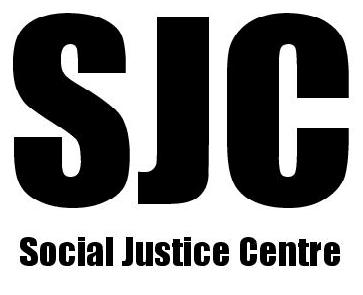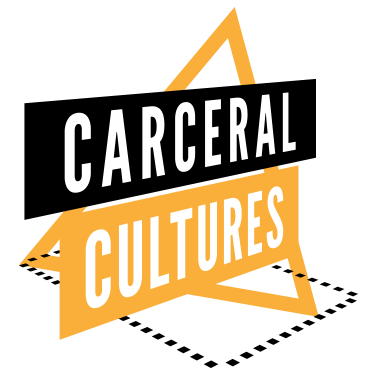CARCERAL CULTURES
March 1 – 4, 2018 • Simon Fraser University, Vancouver, BC, Canada
http://www.carceralculturesconference2018.ca/
Video, Feedback, interviews and Performances - Carceral Cultures Conference 2018
Canadian Association of Cultural Studies / Association Canadienne des Études Culturelles Conference 2018
Carceral Cultures
March 1 – 4
Simon Fraser University, Vancouver, BC, Canada
Conference Keywords: Carceral logistics; detention; dispossession; enclosure; border security; forced migration; freedom
Confirmed keynote speakers: Joy James (Williams College); Dian Million (University of Seattle); and Kim Pate (Senate of Canada)
Confirmed plenary speakers: Tracy Bear (University of Alberta); Sahar Francis (Addameer); Catherine Kellogg (University of Alberta); Mary-Jo Nadeau (University of Toronto); Dorit Naaman (Queen’s); Silky Shah (Detention Watch); Brett Story (Ryerson); Sunera Thobani (University of British Columbia); Rafeef Ziadah (SOAS, University of London); Jasmin Zine (Wilfrid Laurier)
Even though prisons have been central to modernity, we live in a time of enormous carceral expansion. The West Bank and Gaza have been described as the world’s largest open-air prison, where carceral logistics permeate all forms of life on a daily basis. Across the globe, refugee camps, immigrant detention centres, and mass incarceration projects have targeted racialised and marginalized communities. While in many cases actual prisons and architectures of detention are hidden from view and remain inaccessible to the public at large, the impact of incarceration—its breadth and extension—is rendered as a set of logistics that work their way through material and affective economies.
We invite participation in the CACS meeting for 2018 on the theme of carceral cultures in order to examine the myriad ways in which the carceral has come to shape the economies, ecologies, aesthetics, and social and political experiences of contemporary culture. Carceral logistics are structuring our society in unprecedented ways, leading to fundamental challenges to the meaning, expression and experience of freedom. While the historical route of carceral logistics can be found through the Black Atlantic, the Indian Ocean and the Caribbean, they are also present in white settler nation states through land dispossession, enclosures, and the reformation of property law. Carceral logistics have informed the contemporary era of border technologies, data aggregation, and surveillance. They are found in the ubiquitous technologies of the state to organize and govern populations, to establish forms of segregation and partition.
Productive forms of resistance and challenges to carceral logistics are varied and strong, from the BDS campaign to solidarity movements between #blacklivesmatter and Palestine. The formation of prison solidarity in places such as Cairo, Abu Ghraib, and Guantanamo, are stories that underscore how freedom can be struggled for even at the heart of the carceral state. Indigenous movements and migrant justice networks have continuously struggled to capture and redefine freedoms that can exist outside of this logistical matrix.
The conference is hosted at Simon Fraser University’s Vancouver Campus on the unceded territories of the Coast Salish peoples of the xʷməθkʷəy̓əm (Musqueam), Sḵwx̱wú7mesh Úxwumixw (Squamish), and Səl̓ílwətaɬ (Tsleil-Waututh) Nations. Papers, panels and workshops are invited on (but not restricted to) the following topics:
➢ Representational strategies concerning incarceration and freedom
➢ Data, surveillance, sousveillance
➢ Abolition movements
➢ Carceral intimacies
➢ Capital, labour, and political economy in the carceral state
➢ Enclosure, segregation, apartheid, partition
➢ Prison literacies
➢ Military occupation
➢ Carceral mobilities
➢ Legacies of internment
➢ Cultural memories of incarceration
➢ Embodied in/carcerations
➢ Carceral feminism and its alternatives
➢ Poetics of resistance
➢ Freedom from Ferguson to Palestine
➢ Black Lives Matter
➢ Politics of containment and resistance
➢ From slavery to incarceration
➢ Indigenous dispossession and incarceration
➢ Carceral logistics at the level of domesticity and social reproduction
➢ Red zones and other carceral geographies
➢ Community responses to urban policing and punishment
➢ Pedagogy and the carceral, e.g. Teaching Inside/Out
We strongly encourage pre-constituted panels, workshops and alternative approaches to academic presentation styles. Proposals for presentations/papers, panels, roundtables and workshops will be due October 30, 2017. Please be sure to include all of the requested information pertaining to your presentation with your proposal. There is limited funding available for students, low- or un-waged participants, and community organizers. Please contact the conference organizers for more information. More details about submission and registration will be forthcoming. All submissions to the Carceral Cultures Conference can be sent to the conference organizers at the email address cacs@sfu.ca.
Organizing Committe: Davina Bhandar (Conference Chair); Clint Burnham; Dara Culhane; Jeff Derksen; Milena Droumeva; Zoë Druick (CACS On-site Committee Chair); Samir Gandesha; Adel Iskandar; Christine Kim; Claudette Lauzon; Frédérik Lesage; Helen Leung; Michael C.K. Ma; Kisten E. McAllister
------
March 1 – 4, 2018 • Simon Fraser University, Vancouver, BC, Canada
1) OPEN CALL PAPERS
Format: Solo or jointly presented research papers lasting no more than 20 min. Submissions in this category must provide the following details:
Type: State this is an open call research paper
Title: Paper title
Name(s): Speaker(s)
Contact: Email address(es) for the speaker(s)
Abstract: Description of the paper not exceeding 300 words
Sources: List up to 5 sources relevant to the paper
Biography: Brief professional biography/ies for the speaker(s) not exceeding 100 words
Keywords: Up to 5 terms identifying the focus of the paper
2) PRE-CONSTITUTED PANELS
Format: 90 min panel of 3 x 20 min OR 4 x 15 min thematically linked research papers followed by questions. Submissions in this category must provide the following details AS A SINGLE SUBMISSION:
Type: State this is a pre-constituted panel
Title: Panel title
Name(s): Chair(s)
Contact: Email address(es) for the chair(s)
Abstract: Description of the panel not exceeding 300 words
Biography: Brief professional biography/ies for the chair(s) not exceeding 100 words
Keywords: Up to 5 terms identifying the focus of the panel
In addition, the submission must provide the following for EACH paper on the panel:
Title: Paper title
Name(s): Speaker(s)
Contact: Email address(es) for the speaker(s)
Abstract: Description of the paper not exceeding 300 words
Sources: List up to 5 sources relevant to the paper
Biography: Brief professional biography/ies for the speaker(s) not exceeding 100 words
3) PRE-CONSTITUTED WORKSHOPS
Format: 90 min interactive forum led by 4 or 5 x 8 min thematically linked informal presentations designed to energize collective discussion and participation amongst the speakers and the audience relating to the practices of researching or teaching media industries. Submissions in this category must provide the following details AS A SINGLE SUBMISSION:
Type: State this is a pre-constituted workshop
Title: Workshop title
Name(s): Chair(s)
Contact: Email address(es) for the chair(s)
Abstract: Description of the workshop not exceeding 300 words
Sources: List up to 5 sources relevant to the workshop
Biography: Brief professional biography/ies for the chair(s) not exceeding 100 words
Keywords: Up to 5 terms identifying the focus of the workshop
In addition, the submission must provide the following for EACH presenter in the workshop:
Name(s): Presenter(s)
Contact: Email address(es) for the presenter(s)
Abstract: Description of the presentation not exceeding 150 words
Biography: Brief professional biography/ies for the speaker(s) not exceeding 100 words
----
The Carceral Cultures Conference invites an intersectional analysis of phenomena such as mass incarceration, migrant detention, and the workings of the surveillance society. Building on the efflorescence of scholarship, activism, and cultural production founded in Indigenous sovereignty, Black Lives Matter and other communities of resistance, the conference will take into account issues surrounding border security, prisons, surveillance systems, and the logic of segregation and suspicion that has come to permeate so many facets of everyday life. Over three and a half days, Carceral Cultures will bring together high profile keynote speakers, community activists, and cultural producers, with students, scholars, and members of the public from across North America, UK, and the Middle East. Together, we will examine and interrogate the myriad ways in which the carceral has come to shape the economies, ecologies, aesthetics, and social and political experiences of contemporary culture.
The conference is hosted at Simon Fraser University’s Vancouver Campus on the unceded territories of the Coast Salish peoples of the xʷməθkʷəy̓əm (Musqueam), Sḵwx̱wú7mesh Úxwumixw (Squamish), and Səl̓ílwətaɬ (Tsleil-Waututh) Nations.



